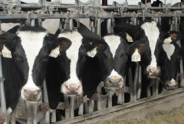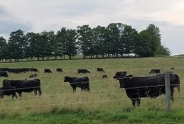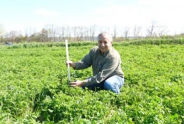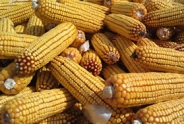GDDs August 7, 2020
Erik Smith, Area Field Crop Specialist/Team Leader
Central New York Dairy and Field Crops
Each week we will be offering the air Growing Degree Days (GDDs) for corn that have accumulated to date from 13 locations across the team 8 county area. A thank you to our intern Peter Burritt for pulling this information together.
Four planting dates will be listed and included will be:
GDDs Season To Date
15 Year Average GDDs
30 Year "Normal" GDD
Period of Record - Max and min recorded GDDs for that time period
See: Growing Degree Day Calculator
Growing Degree Days for corn are Base 86/50 degree F and calculated by taking the average daily temperature, ((Daily Max Temp - Daily Min Temp)/2) - 50. But the maximum temperature cannot be more than 86 degree F and the minimum less than 50 degree F.
Planting date GDDs continue above the 15 year average and definitely above the 30 year "normal" for the date and the May 10 and 20 planting dates are near record GDDs for this date.
Tasseling/silking (1200 GDDs) should be completed at most locations except for corn planted June 1 and at higher elevations. If you know your GDDs for your hybrid to physiological maturity(black layer) subtract off 150 GDDs to get you roughly the GDDs needed to silage harvest dry matter for that hybrid. Record Silking/Tasseling Dates for Corn Fields
If you saw tasseling/silking in the middle of July look to start harvesting corn silage the last week of August or first week of September. That may still seem rough in terms of when to begin, but for planning purposes you should be making plans for an early start for corn silage harvest this year unless weather changes drastically to temps below the 15 year average. It is always hard to think of corn silage being too dry, especially after 2019, but think back to 2018 where dry matters actually started to get ahead of us at harvest which also began late August to early September.
Some of the greatest corn yield losses can occur from drought stress at tasseling/silking. Kernels 10-14 days after silking (R2-blister stage) may abort from drought stress. As of 4 August, all eight of our counties were listed in the abnormally dry category at the United States Drought Monitor site and much of Saratoga County indicated as moderate drought: NY State Drought Monitor Map
See the attached table for more of the August 7, 2020 results.
See the attached pdf for a good guide on corn development and our reference for growth stages.
GDDs August 7, 2020 (pdf; 115KB)
Visual Guide to Corn Development (pdf; 21544KB)
Upcoming Events
2026 Corn & Soybean Day
January 20, 2026 : Corn & Soybean Day - Hamilton
Hamilton, NY
Lunch included. 2.75 DEC Credits available
January 21, 2026 : Corn & Soybean Day - Ballston Spa
Ballston Spa, NY
Lunch included. 2.75 DEC Credits available
I Thought I Was Covered for That! - Farm Insurance Webinar Series
January 13, 2026
January 20, 2026
January 27, 2026
February 3, 2026
February 10, 2026
Free Webinar Series
Passing the Torch - Planning Your Farm's Future
January 27 - January 28, 2026
Choose from two locations for this FREE event.
Announcements
Statewide Field Crop Pathology Needs Assessment Survey
Your input is wanted for identifying priorities!Sign Up for Our Weekly E-Newsletter
We send out a bi-weekly e-newsletter that has announcements, upcoming programs, and opportunities for you! Registration is quick, easy, and free. Click here to sign up today!Farmers Can Join MeatSuite For Free!
MeatSuite.com is a free resource provided by Cornell University where NY meat farmers can create a farm profile and list their bulk (wholes, halves, quarters) and bundled (i.e. Grilling Bundle) meat products.Why should farmers join?
1. It's free and easy!
2. Connect with more local customers. In the past year the MeatSuite.com farm directory had 8,300 visits from New York consumers. Farm profiles get as many as 25 views per month from potential local customers. We also spotlight MeatSuite farms on social media and bring attention and purchases to farms through highlights and giveaways.
How do I join?
Farmers can visit https://www.meatsuite.com/farmers/ to create a free farm profile. You must list at least one product for your farm's profile to go live. You'll also have access to Cornell's free Meat Price Calculator, a helpful tool for pricing your meat to make a profit.
While you're on MeatSuite, check out the "Creating Consumer-Friendly Bulk Meats" publication on the log-in page. It has tips on how to create bulk meat products that are easier for first-time buyers to say "yes" to.
If you have any questions as you create your farm profile or products, we're here to help! Please email Matt LeRoux at mnl28@cornell.edu.




